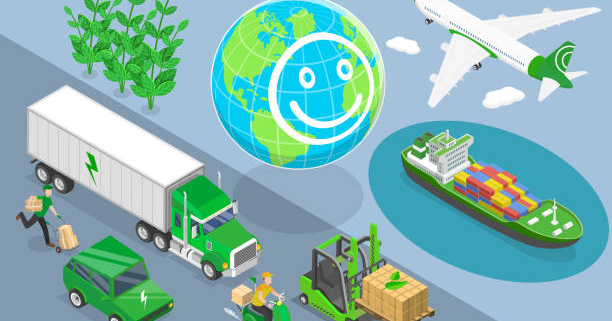The Future of Sustainable Transportation: A Comprehensive Guide
In an era defined by environmental awareness and the urgency to combat climate change, the need for sustainable transportation has never been more critical. As the world embraces innovative solutions, a new era of eco-friendly transportation is dawning. This article explores the future of sustainable transportation and its promising impact on the environment and our daily lives.
- The Rise of Electric Vehicles (EVs)
Electric vehicles have emerged as a game-changer in the quest for sustainable transportation. With advancements in battery technology, EVs have become more accessible, affordable, and efficient than ever before. These vehicles produce zero tailpipe emissions, reducing greenhouse gas emissions and improving air quality. As governments and businesses invest heavily in EV infrastructure, the future holds a seamless integration of electric vehicles into our daily lives.
- Autonomous Vehicles: A Revolution in Transportation
The advent of autonomous vehicles promises to revolutionize the way we commute and transport goods. With the integration of artificial intelligence and advanced sensors, self-driving cars are becoming safer and more reliable. By optimizing routes, reducing traffic congestion, and minimizing fuel consumption, autonomous vehicles hold immense potential for sustainable transportation. Additionally, shared autonomous vehicles could lead to a significant decrease in the number of privately owned cars, further reducing environmental impact.
- Hyperloop and Maglev: Redefining Speed and Efficiency
Hyperloop and magnetic levitation (Maglev) technology offer groundbreaking possibilities for sustainable long-distance transportation. Hyperloop systems, using vacuum-sealed tubes, propel capsules at incredible speeds, dramatically reducing travel time and carbon emissions. Similarly, Maglev trains use magnetic fields to levitate and propel trains, resulting in efficient and high-speed transportation. The integration of these technologies has the potential to transform the way we travel, making it faster, more energy-efficient, and environmentally friendly.
- Urban Planning and Sustainable Infrastructure
Creating sustainable transportation systems requires a holistic approach to urban planning and infrastructure development. By prioritizing pedestrian-friendly design, incorporating dedicated cycling lanes, and enhancing public transportation networks, cities can promote active and sustainable modes of transport. Additionally, the implementation of smart traffic management systems can optimize traffic flow, reduce congestion, and minimize fuel consumption. The future lies in developing cities that seamlessly integrate various modes of sustainable transportation, creating livable and eco-friendly urban environments.
- The Role of Renewable Energy in Transportation
To achieve true sustainability, the transportation sector must shift from fossil fuel dependency to renewable energy sources. The integration of solar, wind, and hydroelectric power into transportation infrastructure can power electric vehicles and reduce reliance on non-renewable resources. Furthermore, advancements in battery technology and the establishment of charging networks powered by renewable energy will play a crucial role in the widespread adoption of electric vehicles, ensuring a cleaner and greener future.


